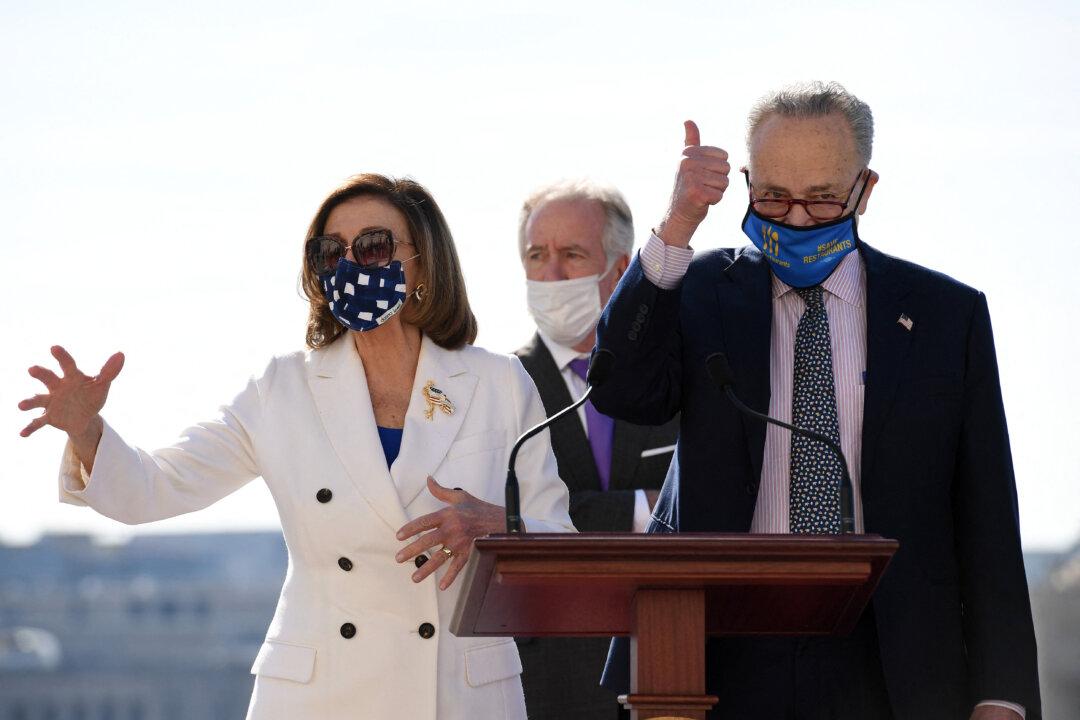At a weekly press conference Thursday, Speaker of the House Nancy Pelosi (D-Calif.) and Senate Majority Leader Chuck Schumer (D-N.Y.), joined by Treasury Secretary Janet Yellen, announced that the White House, the House, and the Senate had negotiated a “framework” to pay for the $3.5 trillion Build Back Better Act.
Opening the conference, Schumer said: “The White House, the House, and the Senate have reached agreement on a framework that will pay for any final negotiated agreement. So the revenue side of this, we have an agreement.” He clarified that they have “an agreement of a framework.”





